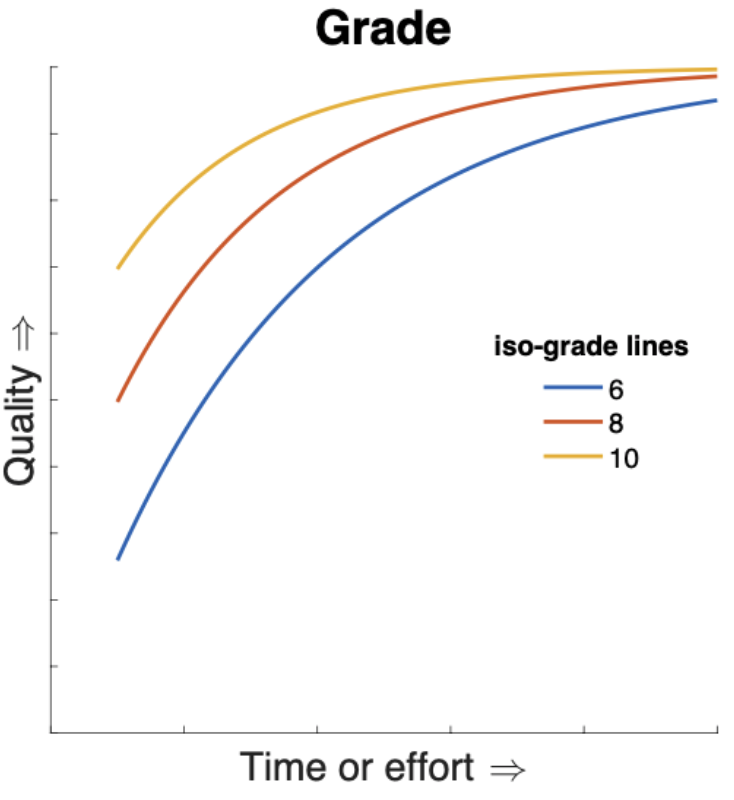NCL Guidelines
Prolegomena
Dear students, you will find in this document an overview of what to expect when doing your BEP/MEP or research masters at the Neurocomputing Lab (NCL).
Usually, to finish their end-project, students will have to write a literature review, do an internship and do their final thesis project. While this is not a requirement, the literature review and thesis are usually done under our supervision.
Note: If you are a BEP student some parts of this document do not apply to you (e.g. Literature study); even so, please still read this document as most parts are important.
Supervision at the NCL
In the NCL, you will get a lot of freedom as we believe that you are the project leader of your final year. Students have both a daily supervisor and a professor as mentors during the project. Generally, projects are related to ongoing research in the NCL. Hence, your daily supervisor (PhD candidate or Postdoc) will be one that is related to this research.
As we said before, this is your project: nobody will know more about your project than you. When you have a problem, feel free to contact your supervisor but please first think of a (or possible) solution(s) yourself. We encourage that you have regular (every 2-3 weeks) individual meetings with your daily supervisor. For these, you should take the initiative to set them up. On top of your individual meetings, regular NCL meetings are organised with all students to share experiences and each student’s projects.
Note: It is your responsibility to make a plan and to stick with it. You should let us know when you are in need of more guidance or feedback.
NCL meetings
Individual meetings
These meetings are with your daily supervisor or professor. Please send documents and questions at least 24 hours prior. During these meetings take time to show an overview of the latest progress and what your plans are until the next meeting. Of course, any problems you have will be discussed in these meetings.
Monthly meetings
At the NCL, we have meetings where every student presents their progress to the rest of the students. Students will get feedback and provide feedback to the rest. We want these meetings to be a platform for exchanging ideas and as a result, for having lively conversations.
Grading
When graduating with us, we will be grading your MSc thesis and (usually) your literature study.
The literature study will be graded on the:
- Scientific writing,
- Use of references,
- Quality of literature search, and
- Coherence between goal/conclusion.
The MSc thesis will be graded on the:
- Paper/report,
- Defense/presentation,
- Project management, and
- General work.
Literature study
The literature study (not review) is supposed to answer a scientific question. This is done by using literature as the source of information. This goal is something that you should be able to achieve. Hence, when choosing the scientific question do not think of words such as investigate or study. These are not achievements. Moreover, when formulating the problem statement, don’t forget to explain why this research is important for society and how it fits in the larger scheme of things. You will get feedback from your supervisors throughout your work. Most important is that you have a table of contents early so that you know which direction you are taking. Then, the introduction, research questions must be properly formulated. Once these are agreed upon you will get feedback for each chapter by your daily supervisor. Your final draft will receive a final round of feedback by all your supervisors.
Master thesis/BEP
The final project can be written either as a project report or a paper (scientific article). Note that, while highly encouraged, choosing to write a paper will challenge you to put many details in the appendices, as concise writing for an article is not easier than writing a report. Same as for the literature study, the way you state your problem statement, aim and hypotheses are very important. Before you start your project please read and understand the code of conduct (TUD/EMC).
Time management
Time management is important for both your literature study and thesis. It is easy to think that spending more time will improve your grade, but it is not always the case (see figure).
Useful links
- Code of conduct TUD / Code of conduct EMC
- MSc Neuroscience study programme EMC
- BSc Nanobiology programme EMC-TU Delft
- Ten simple rules for structuring papers
Contact
- Mario Negrello: m.negrello@erasmusmc.nl,
- Christos Strydis: c.strydis@erasmusmc.nl,
- Elias Fernandez: e.fernandezsantoro@erasmusmc.nl

Appendix: Important Steps
Initial meeting
When it is time to choose your BEP/MEP, email us to indicate your interest. After this first contact, we usually discuss possible options with you. For this, we take into account both the ongoing research in the lab, as well as, your background and your interests.
General
- MEP – 000: Write a thesis proposal including the literature study, the internship and MSc thesis.
- This is a plan with milestones, objectives and deliverables.
- Your supervisors will check:
- feasibility, academic level, research question, and research methodology.
- Please update this plan regularly and discuss it with your supervisors.
Literature survey
- LS – 001: Draft a goal/aim for the literature survey.
- Discuss it with your supervisors and iterate until a final goal is agreed upon.
- LS – 002: Organize your literature study.
- Write the introduction and the table of contents.
- Discuss it with your supervisors until the content and organization is agreed upon.
- LS – 003: Write each chapter and send them for feedback.
- LS – 004: Finish your final draft and send it for feedback.
- LS – 005: Deliver your final version.
MSc-thesis project
- MT – 001: Start your work on the MSc thesis and set up the first few meetings with your supervisors.
- Note that your professors are busy so early scheduling of meetings can help you a lot.
- MT – 002: Some months after the start, when you get your first results you should give a small talk/presentation to the rest of the lab.
- MT – 003: Once you get to analyze your results, discuss with your supervisor what type of results you want to show in your report/paper.
- MT – 004: Start writing your report/paper and, similarly to the literature study, send each chapter for review.
- MT – 005: Submit your last draft for a final round of feedback. Your supervisors will tell you if you can graduate or need to improve your work.
- MT – 006: Schedule your thesis defense date.
- MT – 007: Submit the final version of your report/paper 2 weeks before the defense date.
- Give a copy to your supervisors and the rest of the thesis committee.
- MT – 008: At your defense give a presentation open to the public (friends, family, classmates). This will be followed by a closed defense with your thesis committee.
- MT – 009: After a successful defense, get your grade. Congratulations!
